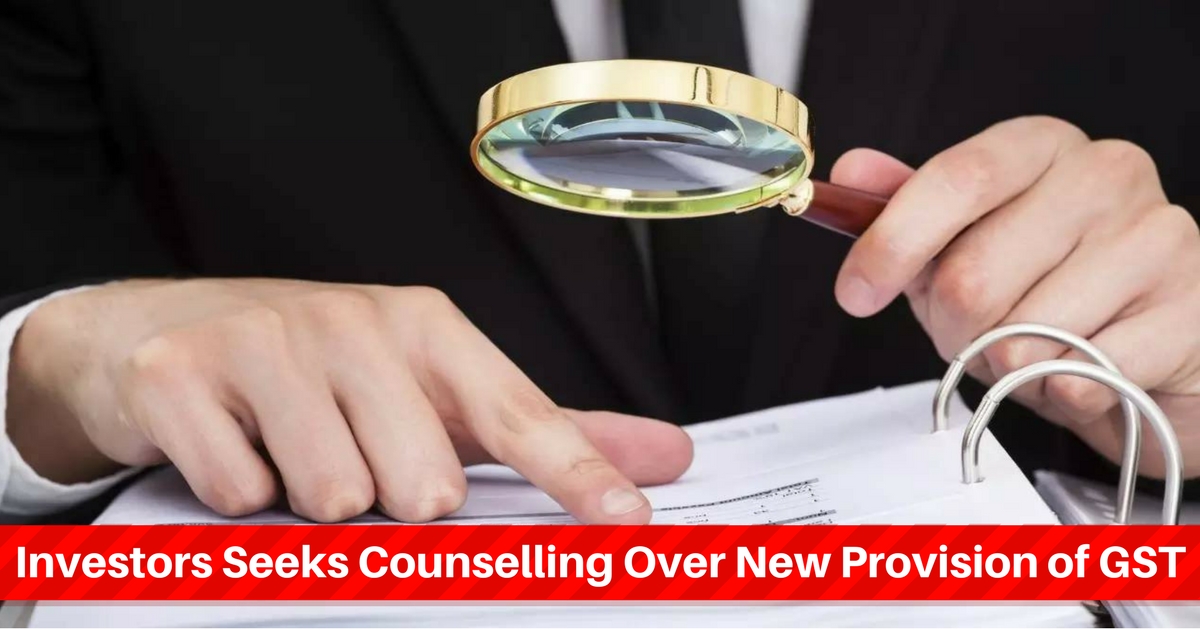Indian Venture capitalist and other private equity firms which are the main responsible entities who boosts and pushes numerous private budding firms and startups towards a better financial position are now afraid of the upcoming goods and services tax heading this July 1st. The reason being is the new GST tax law which will give the authority to the tax officials to claim the taxes dues of their concerned investor companies with full interest and penalties from the designated directors.
The tension arises by a mark more in the light of the fact that the claim can even turn towards past transactions which will give a major setback to the granted companies directors in analyzing and auditing the claimed tax data. This is the main task to be struggled along with the risk of the even personal property being confiscated.
Read Also: Goods and Services Tax Impact on SMES and Startups in India
The risk can be proved valid if the nonrecovery is affiliated with the gross neglect, misfeasance or breach of duty by the directors. The provision aforementioned, are being incorporated in section 89 of the central goods and service tax act which also takes the industry to a diverted path and making the state very confusing as many industry experts are vigilant over this matter and are quoting the confusion of it not clearing over the category on which directors will be imposed. While other community of the experts are hopeful in this and has backed up by saying that this new provision is having some minor differentiations from the earlier laws and can be defended in the case of protesting.
Avinash Bajaj, managing director of Matrix Partners mentioned that “This is a very draconian provision buried in an otherwise very welcome legislation and very retrograde for the ease of doing business objective of the government.” The matrix partners are such organization which has invested around USD 600 million via venture capital investments into various companies like cab-hailing app Ola, online classifieds platform Quikr and Treebo Hotels along with other numerous companies in India.
ChrysCapital which was a major resource in backing up various large organizations like Idea Cellular, Axis Bank, and HCL is a self-made PE investor and currently, handles investments worth USD 3 billion on an average is also in the analyzing phase and is totally concerned with the GST new provision. ChrysCapital’s partner Ashley Menezes stated that “Most nominee directors of financial investors are typically denoted as non-executive directors. However, in this matter, there is no carve-out for non-executive directors, in other words, all directors are liable, While the directors may not be personally liable until there is a default by the company, this is an onerous rule and cause of concern for financial investors.”
Eyeing upon some major taxation laws, certain central excise, service tax and customs provisions levy some penalties on the directors for noncompliance with the company rules and the claims are limited to the extent of the only company and not covering the full area of the tax claim. Although in various laws pertaining to the noncompliance of service tax, the directors can be confiscated at the normal sizable cap of INR 1 lakh only.
Sandeep Chilana, partner at law firm Shardul Amarchand Mangaldas & Co. says that, “Under GST, all directors are personally liable if the company fails to pay tax and the tax amount as well as penalties and interest can be recovered from the director, This is a variation from previous central laws where the liabilities of directors were capped to the extent of penalties.”
PE firm True North which has been managing USD 2 billion portfolio across a wide platform also purchased Religare which deals in health insurance business speaks about this provision through the voice of its director Rahul Kapani, “If there is a wilful default or a case of negligence, then the officer in charge of the company’s affairs is held responsible first. Whole time directors follow later and then-nominee directors, in that order as per the established process,” Also added, “Besides, such provisions already exist in value-added tax laws of certain states. It is good for governance as the law is placing responsibility on directors.”
Industry experts said the new law puts the example of demonstrating assessment resistance that did not happen because of carelessness, misfeasance or break of obligation on the executors of these organizations. This gives space to financial experts to place pressurizes that can bring about long cases and increment the cost of working together for money related financial specialists, particularly in situations where the claim is made for a period that goes before the venture date when the speculator had no oversight on the organization’s undertakings.
Recommended: GST Composition Scheme: Key Features, Eligibility and Registration Process
Abhishek Rastogi, a partner at law firm Khaitan and Co., “Investors will be more cautious when conducting due diligence now. They will ensure that contingent liabilities arising out of any tax-related issues are thoroughly protected in various indemnity clauses.”
Money related financial specialists are probably going to settle clear duties regarding duty liabilities keeping in mind the end goal to ensure themselves before they make a venture, assess professionals and legal counselors. These subsequent difficulties could likewise imply financial specialists buy D&O (Directors and Officers Insurance) spreads to ensure their chosen people on the sheets of organizations. Generally, the hazard and cost of consistency are probably going to increment, as indicated by different partners.










